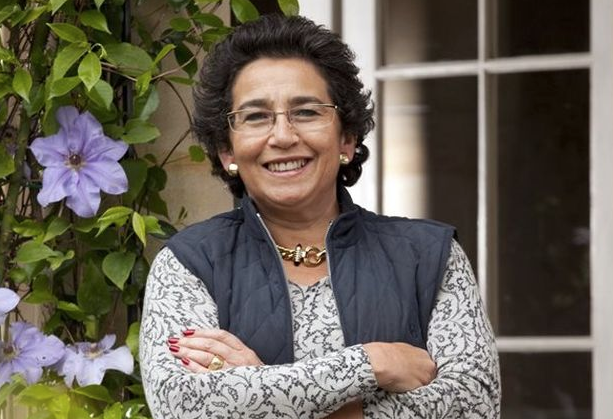Wendy Appelbaum is a force to be reckoned with when it comes to women to take notes from in South Africa. With a net worth of R2.6 billion, a heart of gold (as her myriad of philanthropic pursuits attest to) and an eye for opportunities that empower not just herself but many women, South Africa’s wealthiest woman can teach us all a thing or two, or four.
Here are 4 lessons we can all learn from SA’s richest lady, Wendy Applebaum
1. When life hands you an opportunity, grip it with both hands
Born to wealthy parents Sir Donald and Peggy Gordon in the 60s, Appelbaum’s career would kickstart when she started working for her father after studying at Wits– the same man who founded Liberty Life Association of Africa.
As the story goes, Sir Donald Gordon “watched his father work hard all his life, yet reap little financial reward for his efforts” and so the Life Insurer and Authorised Financial Services provider was born in 1957.
Wendy would go on to become the director of Liberty Investors.
Now, while many of us may not have billionaire parents or family members to throw us a bone in life, most of us do have connections that we don’t utilise enough.
And if we don’t have any connections, we need to make it our mission to create them.
As the famous saying goes, it’s not about what you know but who you know. LinkedIn influencers are the masters to watch when it comes to networking, most influencers, in fact, are.
The base core of networking is showing people who you are, what you’re striving toward and how you can benefit them as much as they can benefit you.
The most important thing when it comes to your career is to get your foot in the door and prove that the rest of you deserves to be there. Getting an opportunity is one thing, making it grow is another entirely.
2. Surround yourself with a mastermind alliance of like-minded people
Appelbaum went on to become a co-founder and Deputy Chairman of Wiphold (Women’s Investment Portfolio Holdings). She had a team of ten other women and shares that “Wiphold was one of the most wonderful experiences of her life,” as per How We Made It In Africa.
‘”A lot of people say I was born with a silver spoon in my mouth, which to a degree I was, but I’ve certainly not relied on that to get on with my own business and do what I wanted to do.”
Anyone who’s read Napoleon Hill’s Think and Grow Rich or The Laws of Success will know the concept of a “master mind alliance.” This can be one person or multiple who encourage you to follow through with plans and work together to achieve similar goals.
Appelbaum and her team were massively successful, and focused on a similar goal – to empower women from all walks of life.
3. Create opportunities for others wherever you can
Wiphold’s mission focused on empowering women who were highly disadvantaged and taught them about the power of investing. When she left, she made room for “previously disadvantaged women to take her place” as Entrepreneurs.ng recalls.
The lesson here echoes the Law of Attraction, which says that giving and receiving work on the same spectrum of energy. This doesn’t mean that we should give with the desire to receive, but rather that receiving naturally ties in with giving.
Appelbaum is known for her philanthropy. She has donated generously but more so has a leading role in many organisations focused on women including the Wendy Appelbaum Foundation and its subsidiaries (like the Institute for Women’s Health).
Women Moving Millions, the International Women’s Forum and the World Wide Fund for Nature South Africa are just some of the organisations with philanthropic pursuits that she’s been a trustee of.
4. Make your labour of love generational assets
When Appelbaum ventured into her own fully-fledged business, she stepped away from the world of finance and investing to the wine farm industry to cultivate De Morgenzon Wine Estate in Stellenbosch which has grown to become a gorgeous and highly reputable estate in the industry.
The lesson here lies in that Wendy has made moves that align with making our money work for us – assets.
When many people start businesses, what’s often overlooked is the longevity of the business, ie: how sustainable it is.
As Robert Kiyosaki shares in his book Rich Dad Poor Dad, assets put money into our bank accounts more than they take money out. People get caught up in purchasing what they think are assets (ie: homes or cars) which are actually liabilities as per Kiyosaki. Why? They don’t generate income, and we spend far too much money on their upkeep and maintenance.
The idea to start a wine farm is far more than a labour of love, but a smart investment.
In a Forbes article, Francois Both shares that Wine Farms are a great investment because they build family brands. What Appelbaum did was tap into an already popular market that will be as popular for as long as people enjoy wine and gorgeous scenery (so likely, always) and created a haven for her descendants.
ALSO SEE:
How short-term insurance helps provide a financial safety net
FEATURE IMAGE: Philanthropies.org

